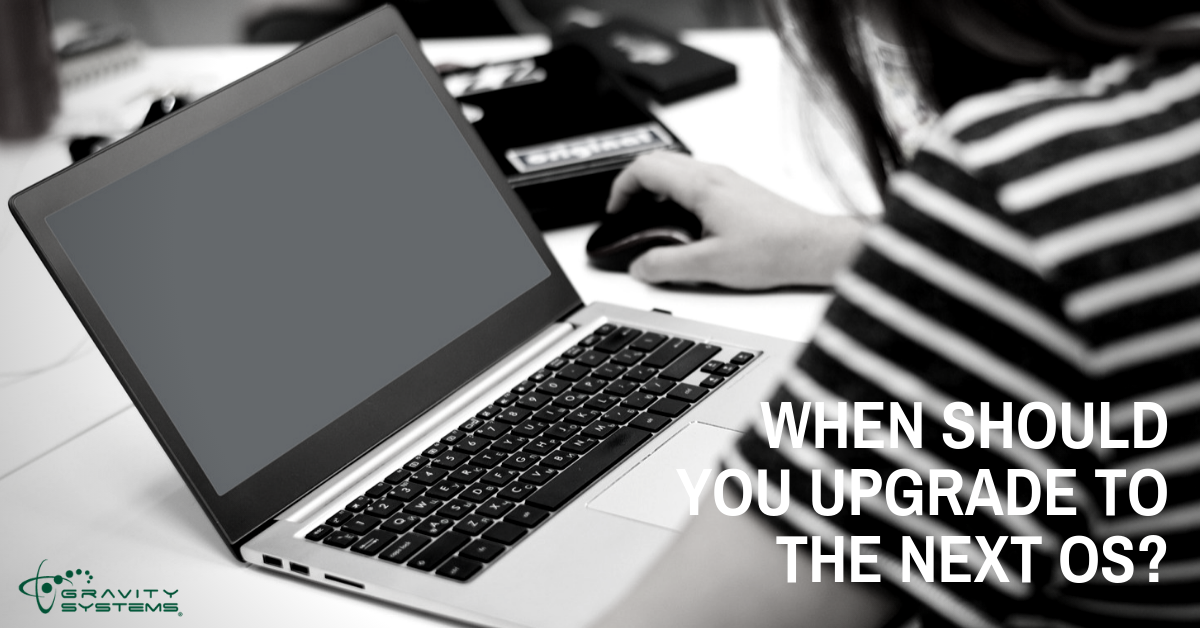Do you have mixed emotions about upgrading your operating system? Of course you want your business to enjoy optimal functionality and robust security, but will a new OS bring new headaches? Let's examine the issue of when to upgrade to that next OS version.
For starters, you'll want to think about the functionality of the OS you're currently using. Are you missing out on some marvelous new features that could genuinely benefit your organization's workforce? If so, now might be the perfect time to upgrade. On the other hand, if the next step up in OS is a huge leap in the employee learning curve, maybe you should wait until your business hits a seasonal lull so your team can devote more time to getting used to the new OS.
Here's another question you need to ask: Just how new is the new OS? Is it a proven product that's already been through a proper shakedown or two, or is it a beta or first-generation release? The earliest versions of an OS can be plagued with bugs yet to be shaken out, so it's always smart to upgrade to a seasoned performer when possible.
.png?width=1200&name=Gravity%20Blog%20(8).png)
Security and manufacturer support decisions may force the timing of your upgrade to some extent. For instance, even if you choose not to upgrade from Windows 7 to Windows 10 today, it's critical that you do so by the end of next year – because Microsoft will offer no support for it beyond January 2020. No support means no new security fixes, no new functionality, and a good chance of compatibility problems with other programs as they're released and upgraded.
Gravity Systems can evaluate your current IT situation and help you decide when to upgrade to the latest and greatest OS. Call our Austin IT managed services team today!
Related Post: How Legacy Tech Can Leave You Lagging Behind

_NO_BCS_bigger_weird_green_clear.png?width=100&name=for-website_large(save-at-500-tall)_NO_BCS_bigger_weird_green_clear.png)


